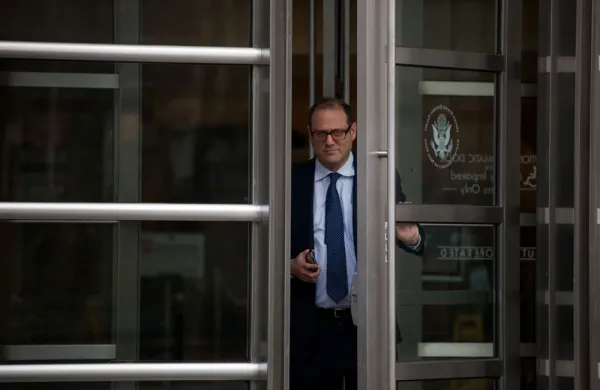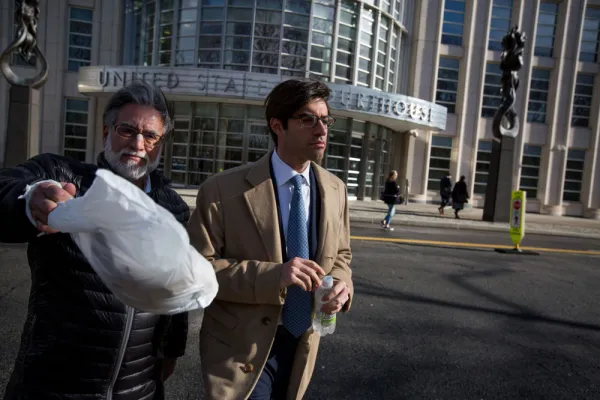Platinum Partners founder Mark Nordlicht and six cohorts at the firm were arrested on Monday and charged in a widespread $1 billion fraud and Ponzi scheme that some are calling a mini-Madoff. “Platinum Partners purported to be a standard bearer in the hedge fund industry, reporting annual average returns of more than 17 percent since inception in 2003,” said Robert Capers, United States Attorney for the Eastern District of New York, in a press release. “In reality, their returns were the result of the overvaluation of their largest assets, which eventually led to Nordlicht and his co-conspirators operating Platinum like a Ponzi scheme, where they used loans and new investor funds to pay off existing investors.”
Platinum earned more than $100 million from the scheme, according to the government. In addition to Nordlicht, the other Platinum executives who were charged are David Levy, co-chief investment officer; Uri Landesman, former managing partner and president; Joseph SanFilippo, chief financial officer of Platinum’s flagship hedge fund; Joseph Mann, a member of the firm’s investor relations and finance departments; Daniel Small, a MD and co-portfolio manager; and Jeffrey Shulse, the former chief executive officer and chief financial officer of Black Elk Energy Offshore Operations, an energy company controlled by Platinum.
Separately, the Securities and Exchange Commission charged Nordlicht and two of Platinum’s hedge fund advisory firms with conducting a fraudulent scheme to inflate asset values and illegally move investor money to cover losses and liquidity problems.
According to the government, the Platinum employees concocted a plan to coax investors to invest in funds they managed “knowing the funds were insolvent and would not return the high yields they claimed.”
The individuals charged are accused of orchestrating two separate schemes between 2011 and 2016 — one to defraud investors and prospective investors in funds managed by Platinum, and a separate scheme to defraud third-party holders of Black Elk’s bonds.
Platinum was launched in 2003 and in March 2016 said in a regulatory filing it had $1.7 billion in assets under management.
The Platinum scandal first came to light in June when co-founder Murray Huberfeld was charged with committing wire fraud after allegedly paying a $60,000 bribe to Norman Seabrook, the longtime president of the Correction Officers’ Benevolent Association, New York City’s largest correction officers union and municipal jail union in the U.S. According to a published report at the time, the FBI and the U.S. Postal Inspection Service raided Platinum’s New York headquarters, which Reuters intriguingly said at the time was not related to the New York City corruption scandal. The New York Observer reported at the time that two prominent Platinum investors complained to the Securities and Exchange Commission that Huberfeld and Platinum had not paid them more than $600,000 in redemptions going back to 2014.
___
Tiger Global Management was one of several investors to participate in a $30 million Series B fundraising recently reported by Starry, an upstart consumer broadband company determined to take on the major players in the industry. The fundraising was disclosed in a regulatory filing dated December 16. It is not known whether this is a new financing since the company disclosed last January it had raised money from Tiger Global, Quantum Strategic Partners, and other firms. Soros Fund Management is the investment advisor to Quantum.
___
Carlson Capital sold more than one-third of its shares in Archrock, a provider of natural gas contract compression services. From November 14 through December 16, the Dallas hedge fund manager sold nearly 3.2 million shares of stock, leaving it with a little more than 6 million shares, or 8.65 percent of the total outstanding.






